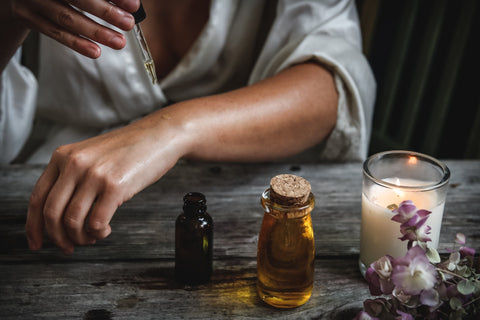Women have some unique health concerns and nutritional requirements. They need higher iron intake due to periodic blood loss. They experience hormonal fluctuations, increasing their risk of anxiety and mood disorders. Similarly, they are also more likely to experience issues like dry skin, hair loss, and brittle nails.
All these issues can be readily prevented and managed through nutrition therapy. Of course, food is the best way to get certain vital nutrients, but taking supplements rich in specific nutrients may be a more reliable way in many instances. Below are the eight best supplements for women:
1. Vitamin A

Vitamin A offers several benefits to female health. It is crucial for maintaining healthy skin, which can be particularly important for women. Vitamin A supports skin integrity and helps prevent dryness and other skin-related issues. Additionally, vitamin A plays a role in supporting the reproductive system by aiding in developing and maintaining healthy mucous membranes in the uterus and other reproductive organs. This is essential for overall reproductive health and the menstrual cycle.
2. B Vitamins
B vitamins provide a wide range of health benefits. They are essential for energy production, nerve health, and cellular well-being. These vitamins also play a crucial role in reducing inflammation in the body, promoting heart health, and maintaining healthy skin, hair, and nails. B vitamins contribute to mood regulation, alleviate fatigue, and enhance the immune system. Their positive impact extends to bone health, digestion, and overall vitality.
Though these vitamins have many roles in well-being, the human body can store these water-soluble vitamins only in small amounts. It means that disease, digestive issues, and poor nutrition may quickly lead to their deficiencies. Getting them in large amounts through diet is challenging. Thus, taking Zenkgo essential multivitamins could be one way to fulfill their needs.
3. Biotin
![]()
Biotin is not just good for nerve health. It is among the best vitamins for preventing hair fall and managing brittle nails. Additionally, it is good for skin, nerves, liver, and other body functions3.
4. Vitamin D3

Vitamin D3 is the most bioavailable form of vitamin D, which is a hormone-like vitamin. Thus, vitamin D is good for bone health or calcium metabolism and plays a vital role in hormonal and metabolic health. Higher vitamin D intake is known to prevent mood issues, metabolic disorders, boost energy levels, reduce cancer risk, and much more4.
5. Magnesium
Magnesium is among the most abundant minerals in the body. Most of it is in the bones and soft tissues. Magnesium differs from other minerals in that it not only plays a role in bone health or fluid and electrolyte balance, but it also plays a vital role in more than 300 enzyme systems. Thus, magnesium also seems to act like vitamins, accelerating energy production, DNA repair, regulating hormone health, nerve function, and more4.
Those living with magnesium deficiency become prone to mood swings, digestive issues, sleep disturbances, headaches, cramps, and more. Supplementing magnesium may help prevent many of these issues.
6. Iron
Women have slightly higher iron needs due to periodic blood loss. Iron is needed for hemoglobin production. Low iron levels may cause fatigue, mood swings, and even hair loss. The human body also needs minute amounts of iron to produce certain hormones3.
The daily requirement for iron is quite small. However, one should have consistent iron intake to prevent health issues. Therefore, supplementing iron is one good way to meet its needs. Additionally, it is worth understanding that iron in food is not well absorbed, causing a deficiency. Vegans are particularly at risk, as non-heme iron is not absorbed well.
7. Zinc

Zinc holds notable importance for female health due to its involvement in various physiological functions. It is pivotal in supporting the immune system, especially for women's well-being. Zinc contributes to reproductive health by aiding in proper hormone regulation and supporting the menstrual cycle.
Additionally, zinc promotes skin health, assisting in wound healing and maintaining skin integrity. Its role in maintaining strong hair and nails further enhances its significance. Ensuring an adequate zinc intake can thus be beneficial in addressing these aspects of female health.
8. Probiotics
Probiotics can significantly contribute to female health by promoting a balanced vaginal microbiome. The presence of beneficial bacteria through probiotic supplementation can help prevent and manage vaginal infections, such as yeast infections and bacterial vaginosis. This is crucial for maintaining vaginal health and overall comfort.
Probiotics may also offer support for digestive health, which can indirectly impact the body's nutrient absorption and immune system. Incorporating probiotics into one's routine can thus play a beneficial role in supporting women's well-being.
The bottom line
Women must take certain nutrients regularly for healthy metabolism, weight loss, digestion, and gut health, prevent bloating, lower the risk of hair loss, and overcome headaches and anxiety. These nutrients also promote bone growth and cell growth, reduce inflammation, boost immune function, and help counter anxiety and depression. One of the ways to meet the daily requirement of all these vital nutrients is by regularly taking Zenkgo essential multivitamin, which contains all these vital nutrients.
References
- Office of Dietary Supplements - Biotin. Accessed August 12, 2023. https://ods.od.nih.gov/factsheets/Biotin-HealthProfessional/
- Office of Dietary Supplements - Vitamin D. Accessed August 12, 2023. https://ods.od.nih.gov/factsheets/VitaminD-HealthProfessional/
- Office of Dietary Supplements - Iron. Accessed August 12, 2023. https://ods.od.nih.gov/factsheets/Iron-Consumer/
- Office of Dietary Supplements - Magnesium. Accessed August 12, 2023. https://ods.od.nih.gov/factsheets/Magnesium-HealthProfessional/


